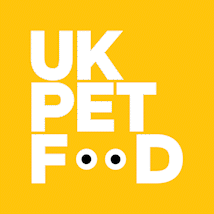Meeting your Dog's needs for their stage of life
Meeting the needs of dogs at varying life stages
'Life stage' nutrition is the practice of feeding pets specific foods designed to meet their needs at a specific age or during a specific physiologic state, such as pregnancy.
By feeding to meet the needs of pets at varying life stages, owners can be sure they are providing their pet with optimum nutrition.
Pet food manufacturers first started formulating 'life stage' pet foods in the early-to-mid 1970s, with the formulation of a puppy diet, and became more widely available from the 1980s onwards. Feeding the optimum nutrients for a specific life stage is aimed at supporting healthy longevity of all pets and today, 'life stage' diets are not only available for cats and dogs, but also iguanas and bearded dragons!
How 'life stage' foods address the needs of your dog

Puppies go through a nursing and growing period and become adult at roughly 1 year of age, though this depends on the breed, with giant breed dogs taking up to 18 months or longer to mature. Puppies get most of what they need during the nursing period from the bitch, providing her nutrition is also adequate.
- For growing puppies, food should be higher in calories and protein, with puppies needing roughly twice as much energy as an adult dog of equivalent size.
- Although many nutrients are needed in higher quantities, some nutrients may need to be carefully controlled. For instance, large-breed puppies are susceptible to bone problems if too many calories and/or too much calcium is given during this growth phase, so owners should always be aware of the risk of adding supplements to a carefully formulated puppy food.
- Other nutrients such as the fatty acid DHA, which helps develop the brain and eye, and L carnitine which supports muscle and bone growth, have recently received more attention in growth nutrition.
- Food for growing animals should also be highly digestible, but energy-dense, to avoid digestive upset and prevent the need for large meals.

A bitch is pregnant for roughly 9 weeks but doesn't need any more food than usual until the 6-week stage. Her energy intake should then be increased by around 30% until the puppies are born.
- This can be easily achieved by using a puppy food which is higher in energy, but balanced in protein and calcium to supply nutrients for growth.
- While producing milk about 2-4 times more calories are needed compared to a non-lactating dog. This means that the bitch needs to be fed a suitable food that is higher in protein, energy and calcium to support milk production, at frequent intervals through the day. Again a puppy food would be appropriate for this.
- Water is a very important nutrient during milk production and should be supplied at all times.

Optimum nutrition during adulthood is aimed at promoting quality of life and in maintaining health.
Obesity is the major nutrition-related problem facing the adult dog population today, and this is particularly a problem after neutering, but there are diets available designed specifically to help reduce the risk of weight gain in adult animals.

By about 7 years and older, dogs start to experience a decline in the function of certain organs, including the immune system. The kidneys, heart and digestive tract may also show reduced functioning or increased sensitivity. Older animals may be less active and their sense of smell or taste can also be affected.
- There are foods available for older dogs which have an adjusted nutritional composition. Nutrients such as antioxidants, which support immune function, may be used and special attention is paid to making the food palatable, highly digestible and easy to chew.
- Particular attention should be paid to appetite and body weight, as this may reduce as a dog gets very old. Always consult a vet if worried about changes in a dog’s weight.
Diabetes in dogs:
To understand more about Diabetes and how many dogs in the UK have the condition, contact one of the following veterinary bodies:
